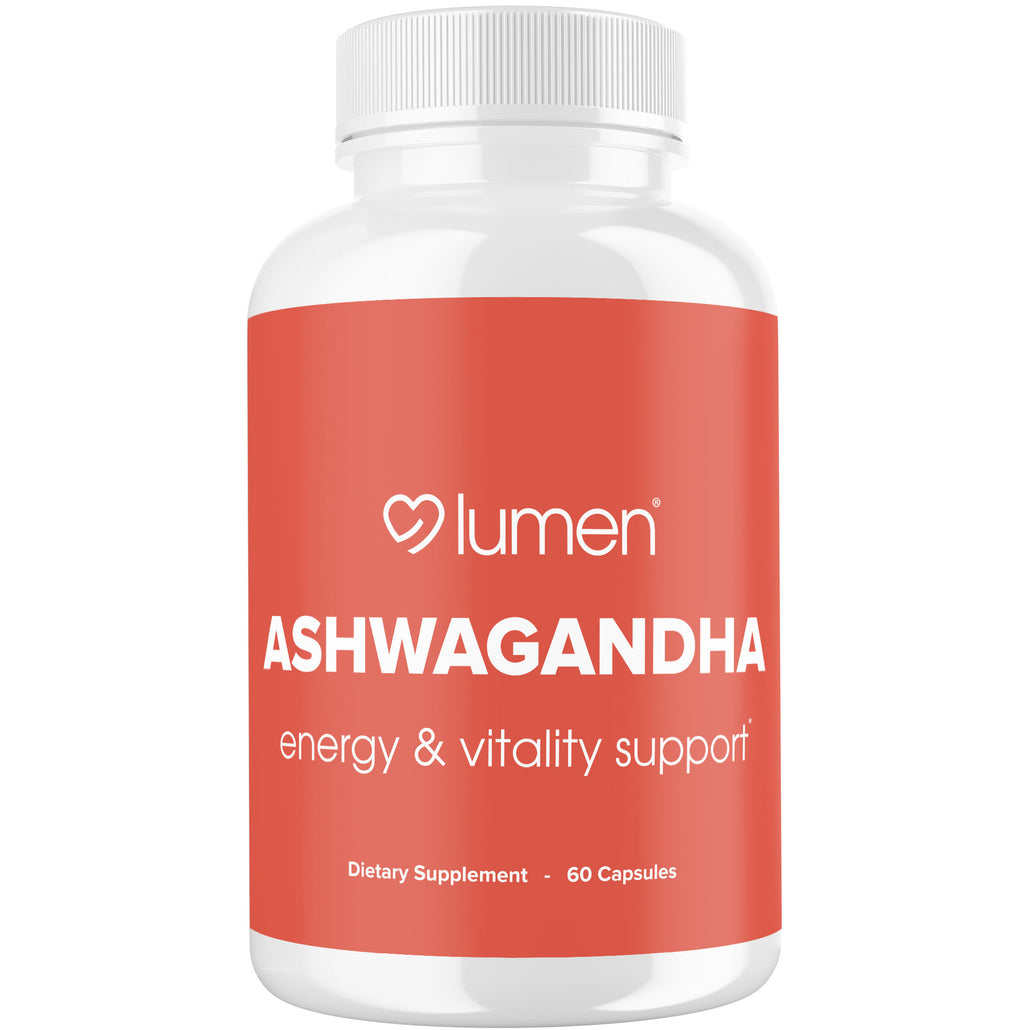Deep Breathing Relieves Stress & Promotes Sleep
Feel better, stay calm, sleep well and relieve pain with deep breathing
Deep Breathing Relieves Stress & Promotes Sleep
Feel better, stay calm, sleep well and relieve pain with deep breathing
“Take a deep breath”.
Perhaps you remember a suggestion like this from one of your parents growing up - well there are reasons why they might have suggested it.
Deep breathing, also called abdominal or diaphragmatic breathing, offers a myriad of health benefits that are now backed by scientific evidence. The benefits of deep breathing range from lowered anxiety and stress to stabilizing blood pressure, which works to enhance psychological well-being.
Moreover, some breathing techniques can also improve posture and may also boost athletic performance. In this article, we'll take a look at 5 amazing health benefits of deep breathing and 6 easy steps to practice it.
“Take a deep breath”.
Perhaps you remember a suggestion like this from one of your parents growing up - well there are reasons why they might have suggested it.
Deep breathing, also called abdominal or diaphragmatic breathing, offers a myriad of health benefits that are now backed by scientific evidence. The benefits of deep breathing range from lowered anxiety and stress to stabilizing blood pressure, which works to enhance psychological well-being.
Moreover, some breathing techniques can also improve posture and may also boost athletic performance. In this article, we'll take a look at 5 amazing health benefits of deep breathing and 6 easy steps to practice it.
A Quick Overview of Deep Breathing
A Quick Overview of Deep Breathing
According to The National Center for Complementary and Integrative Health, abdominal breathing is:
"A deep breathing practice that involves slow and deep inhalation through the nose, usually to a count of 10, followed by slow and complete exhalation for a similar count. The process may be repeated 5 to 10 times, several times a day"
A bit complex, huh? Simply put, aim for a 2-minute session of conscious and controlled breathing practice in a quiet place. Feel the air that goes in through the nostrils and moves out through the mouth. Make sure to keep the number of breaths per minute below 10. Remember that the normal breathing rate per minute for a healthy adult is 12 to 20.
The major difference between deep breathing and normal breathing is that the former is a conscious act, whereas deep breathing requires conscious control.
According to The National Center for Complementary and Integrative Health, abdominal breathing is:
"A deep breathing practice that involves slow and deep inhalation through the nose, usually to a count of 10, followed by slow and complete exhalation for a similar count. The process may be repeated 5 to 10 times, several times a day"
A bit complex, huh? Simply put, aim for a 2-minute session of conscious and controlled breathing practice in a quiet place. Feel the air that goes in through the nostrils and moves out through the mouth. Make sure to keep the number of breaths per minute below 10. Remember that the normal breathing rate per minute for a healthy adult is 12 to 20.
The major difference between deep breathing and normal breathing is that the former is a conscious act, whereas deep breathing requires conscious control.
Five Ways Deep Breathing Benefits Your Physical and Mental Health
Five Ways Deep Breathing Benefits Your Physical and Mental Health
1. Abdominal breathing is your body's natural stress buster.
At times when people take a rest while in a rush and look for peace in chaos, stress is inevitable. A short burst of stress can sometimes be beneficial when it comes to performing well. Nonetheless, chronic stress can lead to chronic inflammation and increase the risk of a host of diseases. These include diabetes, asthma, rheumatoid arthritis, chronic pain, metabolic syndrome, cardiovascular disease, obesity, and degeneration of brain cells.
Most importantly, excess cortisol produced by the adrenal glands plays a key role in causing stress; however, a 2010 study found that 4 weeks of voluntary breathing practice was sufficient to cause a significant drop in cortisol levels.
2. Breath deeply and improve your lung function.
Evidence suggests smokers or those who have respiratory conditions including COPD (Chronic Obstructive Pulmonary Disease) should definitely practice deep breathing routinely. Studies have shown that abdominal breathing that lasts as little as 2 minutes can greatly enhance one's breathing capacity. According to one recent study, a 2-minute abdominal breathing practice at the rate of 6 breaths per minute can help with easy breathing.
3. Sleep better with a daily dose of conscious breathing practice.
Insomnia, the most commonly reported sleep disorder, affects a third of US adults. In a desperate search for a miracle cure, those suffering often turn to sleeping pills. Of course, sleeping pills provide relief from sleeping difficulties but their long-term use is not desirable. This is because they might cause problems such as addiction and they may also have other severe side effects. All thing considered, a daily session of deep breathing can be an effective and natural way to resolve this growing health issue. Moreover, when breathing routines are combined with cognitive-behavioral therapy (CBT), one can expect more robust health benefits.
4. Deep breathing for chronic pain relief.
14.6% of adults have current widespread or localized pain lasting at least 3 months, according to the Center for Disease Control and Prevention (CDC). Narcotic painkillers are the mainstay of chronic pain treatment. However, they can be addictive and pose a serious threat to patient health. To curb the disabling pain, controlled breathing can be highly effective. A 2012 study found that deep breathing interferes with how the brain processes pain signals. In addition, it also calms down the sympathetic nervous system (SNS) in a "top-down" approach, starting with the mind. Altogether, these changes can positively impact one’s pain perception.
5. Combat low moods with deep breathing.
If you are looking for a way to fight off the blues, deep breathing can be your most effective weapon. According to a 2017 study, deep breathing in a controlled manner improves psychological well-being and boosts mental health by helping reduce things such as anxieties or troubling thoughts. Combined with meditation, the benefits are even greater.
1. Abdominal breathing is your body's natural stress buster.
At times when people take a rest while in a rush and look for peace in chaos, stress is inevitable. A short burst of stress can sometimes be beneficial when it comes to performing well. Nonetheless, chronic stress can lead to chronic inflammation and increase the risk of a host of diseases. These include diabetes, asthma, rheumatoid arthritis, chronic pain, metabolic syndrome, cardiovascular disease, obesity, and degeneration of brain cells.
Most importantly, excess cortisol produced by the adrenal glands plays a key role in causing stress; however, a 2010 study found that 4 weeks of voluntary breathing practice was sufficient to cause a significant drop in cortisol levels.
2. Breath deeply and improve your lung function.
Evidence suggests smokers or those who have respiratory conditions including COPD (Chronic Obstructive Pulmonary Disease) should definitely practice deep breathing routinely. Studies have shown that abdominal breathing that lasts as little as 2 minutes can greatly enhance one's breathing capacity. According to one recent study, a 2-minute abdominal breathing practice at the rate of 6 breaths per minute can help with easy breathing.
3. Sleep better with a daily dose of conscious breathing practice.
Insomnia, the most commonly reported sleep disorder, affects a third of US adults. In a desperate search for a miracle cure, those suffering often turn to sleeping pills. Of course, sleeping pills provide relief from sleeping difficulties but their long-term use is not desirable. This is because they might cause problems such as addiction and they may also have other severe side effects. All thing considered, a daily session of deep breathing can be an effective and natural way to resolve this growing health issue. Moreover, when breathing routines are combined with cognitive-behavioral therapy (CBT), one can expect more robust health benefits.
4. Deep breathing for chronic pain relief.
14.6% of adults have current widespread or localized pain lasting at least 3 months, according to the Center for Disease Control and Prevention (CDC). Narcotic painkillers are the mainstay of chronic pain treatment. However, they can be addictive and pose a serious threat to patient health. To curb the disabling pain, controlled breathing can be highly effective. A 2012 study found that deep breathing interferes with how the brain processes pain signals. In addition, it also calms down the sympathetic nervous system (SNS) in a "top-down" approach, starting with the mind. Altogether, these changes can positively impact one’s pain perception.
5. Combat low moods with deep breathing.
If you are looking for a way to fight off the blues, deep breathing can be your most effective weapon. According to a 2017 study, deep breathing in a controlled manner improves psychological well-being and boosts mental health by helping reduce things such as anxieties or troubling thoughts. Combined with meditation, the benefits are even greater.
Want to Practice Abdominal Breathing? Know These 6 Easy Steps
Want to Practice Abdominal Breathing? Know These 6 Easy Steps
1. Stand straight, sit up, or lie on your back and focus on releasing the tension in your muscles. This can be done by mentally scanning your body with your eyes closed - starting at your toes, tense your muscles and then relax them all the way up to your neck.
2. Inhale slowly through your nose as deep as possible until your diaphragm and chest are full with air. Focus on expanding the abdominal region as you breath, and not your chest, for proper diaphragm contraction.
3. Hold the breath for a few brief moments.
4. Exhale in a controlled manner through the nose, while being conscious of how your body feels as the air leaves it.
5. A good rule of thumb is to exhale twice as long as you inhale for a single breath.
6. Repeat this process for at least two minutes, once or more throughout the day as needed, or before bedtime to set the mind at ease.
1. Stand straight, sit up, or lie on your back and focus on releasing the tension in your muscles. This can be done by mentally scanning your body with your eyes closed - starting at your toes, tense your muscles and then relax them all the way up to your neck.
2. Inhale slowly through your nose as deep as possible until your diaphragm and chest are full with air. Focus on expanding the abdominal region as you breath, and not your chest, for proper diaphragm contraction.
3. Hold the breath for a few brief moments.
4. Exhale in a controlled manner through the nose, while being conscious of how your body feels as the air leaves it.
5. A good rule of thumb is to exhale twice as long as you inhale for a single breath.
6. Repeat this process for at least two minutes, once or more throughout the day as needed, or before bedtime to set the mind at ease.
Boost Your Mind & Mood Naturally
Visit Our Store Page to View All Our Products
References
1. Cea, J. U., Gonzalez-Pinto, A. A., & Cabo, O. G. (2010). Efficacy of the controlled breathing therapy on stress: biological correlates. preliminary study. Revista de enfermeria (Barcelona, Spain), 33(5), 48-54.
2. Sivakumar, G., Prabhu, K., Baliga, R., Pai, M. K., & Manjunatha, S. (2011). Acute effects of deep breathing for a short duration (2-10 minutes) on pulmonary functions in healthy young volunteers. Indian J Physiol Pharmacol, 55(2), 154-159.
3. Chien, H. C., Chung, Y. C., Yeh, M. L., & Lee, J. F. (2015). Breathing exercise combined with cognitive behavioural intervention improves sleep quality and heart rate variability in major depression. Journal of Clinical Nursing, 24(21-22), 3206-3214.
4. Busch, V., Magerl, W., Kern, U., Haas, J., Hajak, G., & Eichhammer, P. (2012). The effect of deep and slow breathing on pain perception, autonomic activity, and mood processing—an experimental study. Pain Medicine, 13(2), 215-228.
5. Szabo, A., & Kocsis, Á. (2017). Psychological effects of deep-breathing: the impact of expectancy-priming. Psychology, health & medicine, 22(5), 564-569.
References
1. Cea, J. U., Gonzalez-Pinto, A. A., & Cabo, O. G. (2010). Efficacy of the controlled breathing therapy on stress: biological correlates. preliminary study. Revista de enfermeria (Barcelona, Spain), 33(5), 48-54.
2. Sivakumar, G., Prabhu, K., Baliga, R., Pai, M. K., & Manjunatha, S. (2011). Acute effects of deep breathing for a short duration (2-10 minutes) on pulmonary functions in healthy young volunteers. Indian J Physiol Pharmacol, 55(2), 154-159.
3. Chien, H. C., Chung, Y. C., Yeh, M. L., & Lee, J. F. (2015). Breathing exercise combined with cognitive behavioural intervention improves sleep quality and heart rate variability in major depression. Journal of Clinical Nursing, 24(21-22), 3206-3214.
4. Busch, V., Magerl, W., Kern, U., Haas, J., Hajak, G., & Eichhammer, P. (2012). The effect of deep and slow breathing on pain perception, autonomic activity, and mood processing—an experimental study. Pain Medicine, 13(2), 215-228.
5. Szabo, A., & Kocsis, Á. (2017). Psychological effects of deep-breathing: the impact of expectancy-priming. Psychology, health & medicine, 22(5), 564-569.




